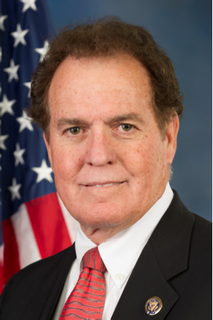A Quote by Steven Chu
If other countries don't impose a cost on carbon, then we will be at a disadvantage...we would look at considering perhaps duties that would offset that cost.
Quote Topics
Related Quotes
A cap and trade bill will likely increase the costs of electricity. . . . These costs will be passed on to the consumers. But the issue is, how does it actually...how do we interact in terms with the rest of the world? If other countries don't impose a cost on carbon, then we would be at a disadvantage. . . . We should look at considering duties that would offset that cost.
We need an honest bottom line. Today that bottom line is vastly subsidized. If anyone of us were paying the full cost of oil our bottom lines would be very different. If you internalize the cost of oil, look at the cost of the war in the Middle East or the cost of global warming for future generations, if you internalize those external costs and what you pay, that bottom line would look very different, what ever business you are in.
[Social legislation] raised the cost of production; and what can be more illogical than to raise the cost of production in the country and then to allow the products of other countries which are not surrounded by any similar legislation, which are free from any similar cost and expenditure freely to enter our country in competition with our own goods...If these foreign goods come in cheaper, one of two things must follow...either you will take lower wages or you will lose your work.
When you look at "Obamacare," the Congressional Budget Office has said it will cost $2,500 a year more than traditional insurance. So it's adding to cost. And as a matter of fact, when the president ran for office, he said that by this year he would have brought down the cost of insurance for each family by $2,500 a family. Instead, it's gone up by that amount. So it's expensive. Expensive things hurt families. So that's one reason I don't want it.




































